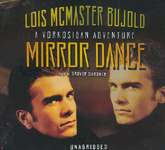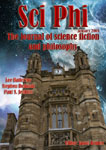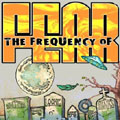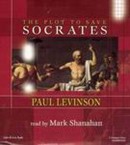
 Mirror Dance
Mirror Dance
By Lois McMaster Bujold; Read by Grover Gardner
15 CDs – about 18 hours – [UNABRIDGED]
Publisher: Blackstone Audio
Published: 2007
ISBN: 9781433205699
Themes: / Science fiction / Space travel / Cloning / Military /
Mirror Dance may be many things, but it is primarily the story of a clone named Mark Vorkosigan and his struggle to discover his own identity. To find himself, he must come to grips with his tortured upbringing, his harrowing training to become a spy and assassin, and the long shadow of the man he was cloned from — a diminutive, homely, yet fiercely inspiring man named Miles Vorkosigan. In the process, he plans a daring infiltration that devolves into pitched battle on an enemy planet, all laid out with action, tactical clarity, and emotional impact that puts some so-called “military SF” I’ve heard to cowering shame. But that’s not all for Mark. He must also find his way through courtly intrigue, survive an uneasy adoption by Miles’s parents, perform some deft detective work, haltingly begin an unlikely little romance, and endure psychologically horrific torture.
Grover Gardner provides the voice that leads us on this tortuous journey. Giving distinct personalities to a pair of genetically identical protagonists is a tall order, yet between Bujold’s words and Gardner’s nuanced performance, the two lead characters remain effortlessly distinct. What’s more, the secondary characters are portrayed with the same care. It is hard to imagine a better reading of this material.
But is there really any doubt about the outcome of these crises? The liner notes are as comforting as a quick look at the final chapter: This book is part of a larger series with the same characters. I read that to mean there would be little chance the author would kill off a vital cash cow.
I know, I know, the demands of the publishing industry have made series works the lifeblood of genre fiction. I’m sure they bring in lots of new SF readers and maybe even some good books here and there, but what do we sacrifice in the process? In this book, it is any palpable sense of suspense or purposeful haste in the proceedings. In general, I think it is risky, new ideas that challenge and expand our concept of what SF and fiction can do. Are the larger sales numbers really worth the cost?
That doesn’t mean this book is a waste of time. The characters are well explored, the situations are thought provoking, and the tone ranges from disarmingly tender to chillingly perverted. You will care about Miles, Mark, their family, and their friends. You will hate their enemies. But at the same time, the sometimes languid pacing and the foreknowledge of the outcome will not make listening to this book an urgent necessity. Bujold can think, she can plot, and she can definitely write. But this book will leave you wishing she’d used all that talent to write something a little bolder.
Posted by Kurt Dietz





